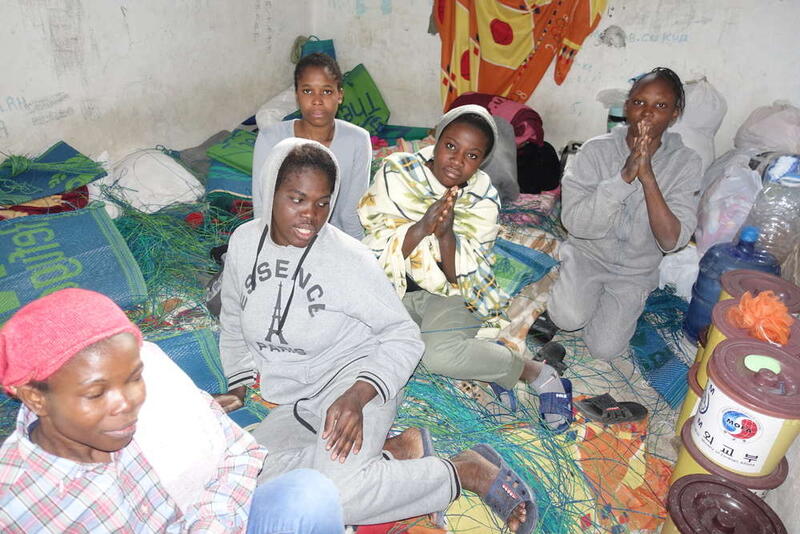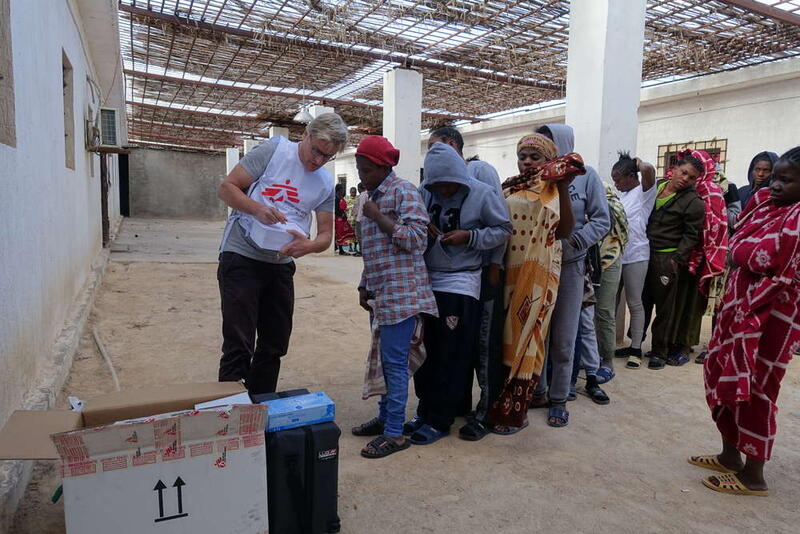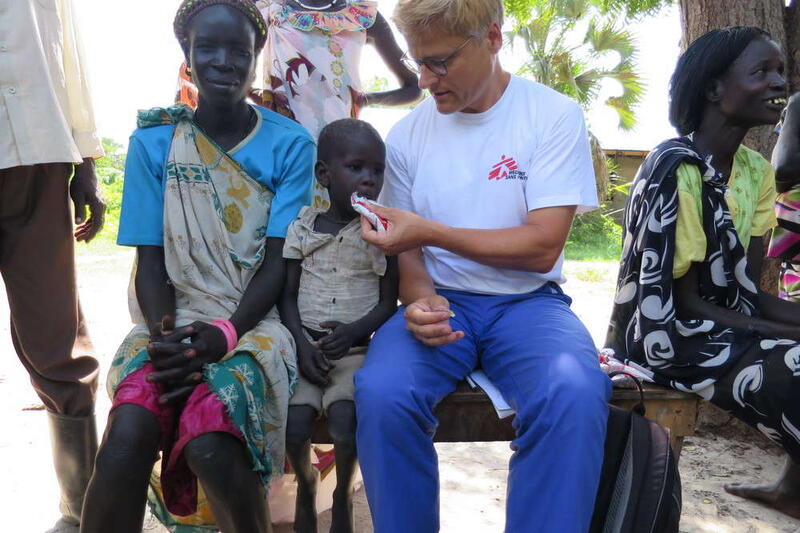25 May 2017
Back from his assignment in Libya, MSF doctor Tankred discusses the harrowing conditions he witnessed inside a detention centre. Written as a letter, he has a special message for MSF supporters around the world...
Dear MSF supporters,
While on the plane to Libya earlier this year, a lot went through my head. What would await me in the country?
Since the end of Muammar Gaddafi’s regime in 2011, Libya has not come to rest. In mid-2014 a bloody conflict erupted.
Again and again, I thought of what migrants, asylum seekers and refugees have told me about their time in Libya. I've spoken with people from Somalia, where a civil war is raging. Many said: "I could not stay in my homeland, but Libya is even worse."
Again and again we hear of torture in Libya. We hear of their fellow inmates in detention centres starving to death beside them. We hear of rape and slavery.
And after hearing all those stories, I found myself on the way there. I looked out of the airplane window, preparing myself for my dual role as doctor and project coordinator. I was to be part of the 'explo team' - a group of four experts who provide an overview of people's needs, and think of how and where Médecins Sans Frontières/Doctors Without Borders (MSF) should open projects.
But how does an aid project get started? This is something I'm asked a lot.
I would like to give you answers through my letter, taking you with me on my recent assignment to Libya.
Libya
When I arrived in Libya I met my team: two colleagues from Libya, and one from France. My Libyan colleagues were irreplaceable when it came to translating, making contacts, or finding a safe way from A to B.
One of the first places we visited was a detention centre for migrants. Many people held there were on their way to Europe - but there were also those who worked in Libya, and had been randomly intercepted by the authorities.
Before coming to Libya, I had heard frightful descriptions of the country from the people we treated on board our rescue ships – these were stories were brutally confirmed upon entering the detention centre.
Trapped in detention centres
As soon as we opened the door, the smell struck me.
A group of women stared at me. I looked at their frightened faces: 39 people, 39 individual destinies. They had hoped to find shelter in Europe, to work, and live a tolerable life.

The women Tankred met in the Libyan detention centre.
But the rubber boat, which they were forced on by human traffickers at night, did not reach international waters - the Libyan coast guard caught them and brought them here.
They come from Nigeria, where fighting between Boko Haram and government forces has displaced hundreds of thousands of people in the north of the country. When I met them, these women had already been imprisoned there for a month, completely cut off from contact with the outside world. Not even their families knew where they are.
I asked the women where the smell came from. They didn’t want to answer at first, but then they showed me their bathroom.
The floor was ankle-covered with urine and faeces; the toilets, wash basins, faucets or showers were missing.
“Nobody sees themselves responsible”
I asked the women whether they had any medical problems, and they lined up for consultations. Almost all of them suffered from skin infections - the result of catastrophic hygienic conditions. I was lucky to have the appropriate medication on me. Many of the women reported generalised pain: often an expression of someone's mental trauma.

People in the Libyan detention centre line up for a medical consultation with Tankred.
I have experienced a lot in my assignments with MSF, but the fate of these particular women both shocked and touched me.
Later we visited more places in Libya to see how and where we could alleviate people’s suffering.
One thing is clear to me: nobody sees themselves responsible for the terrible hardship of these women.
MSF will continue to improve the hygienic conditions in detention centres. However, we have to start doing medical consultations to ensure peoples’ most urgent needs are met.
Thank you
We remain at the side of people in need: be it natural disasters, war zones or epidemics.
It is particularly important that we offer our help independently and impartially. This means not pursuing any political or economic interests. The needs of the people are decisive for us.
First and foremost, the most important thing is addressing the needs of ordinary people.
We can assure this because we are financed by donations from many individuals like you.

Tankred with a young malnourished patient in South Sudan.
Through your private donations, you allow us to decide independently where we open projects – so we can help in places where no one else can.
This is my claim as a doctor: whether in Libya, in remote villages caught up the South Sudanese civil war country, or in other crises - every human being in need of medical support has a right to care and a right to survive.
I would like to thank you very much for making our emergency help possible with your donations.
Your support of our work around the world makes me very happy.
Kind regards,
Dr. Tankred Stoebe
Physician, Médecins Sans Frontières/Doctors Without Borders (MSF)


